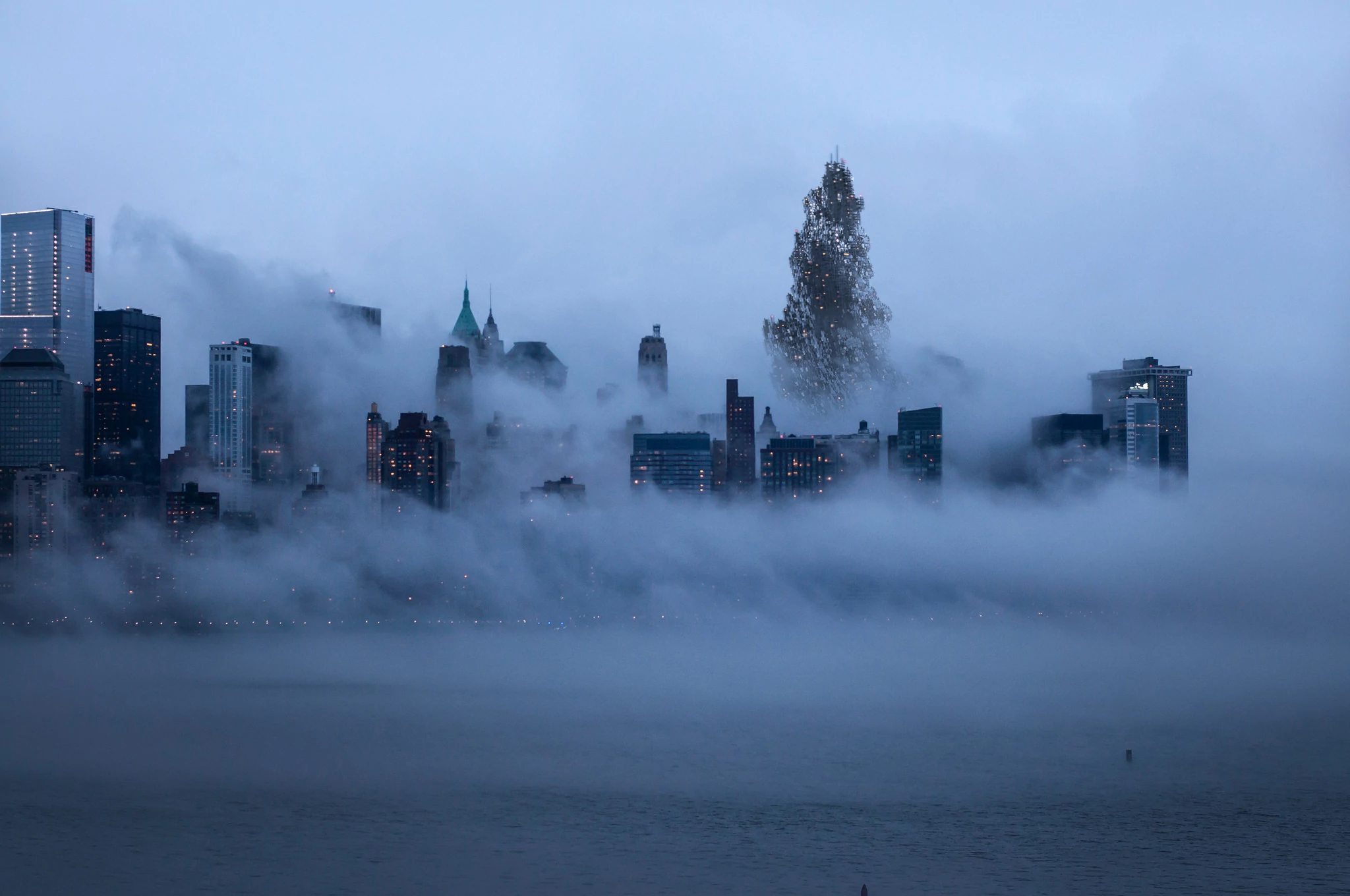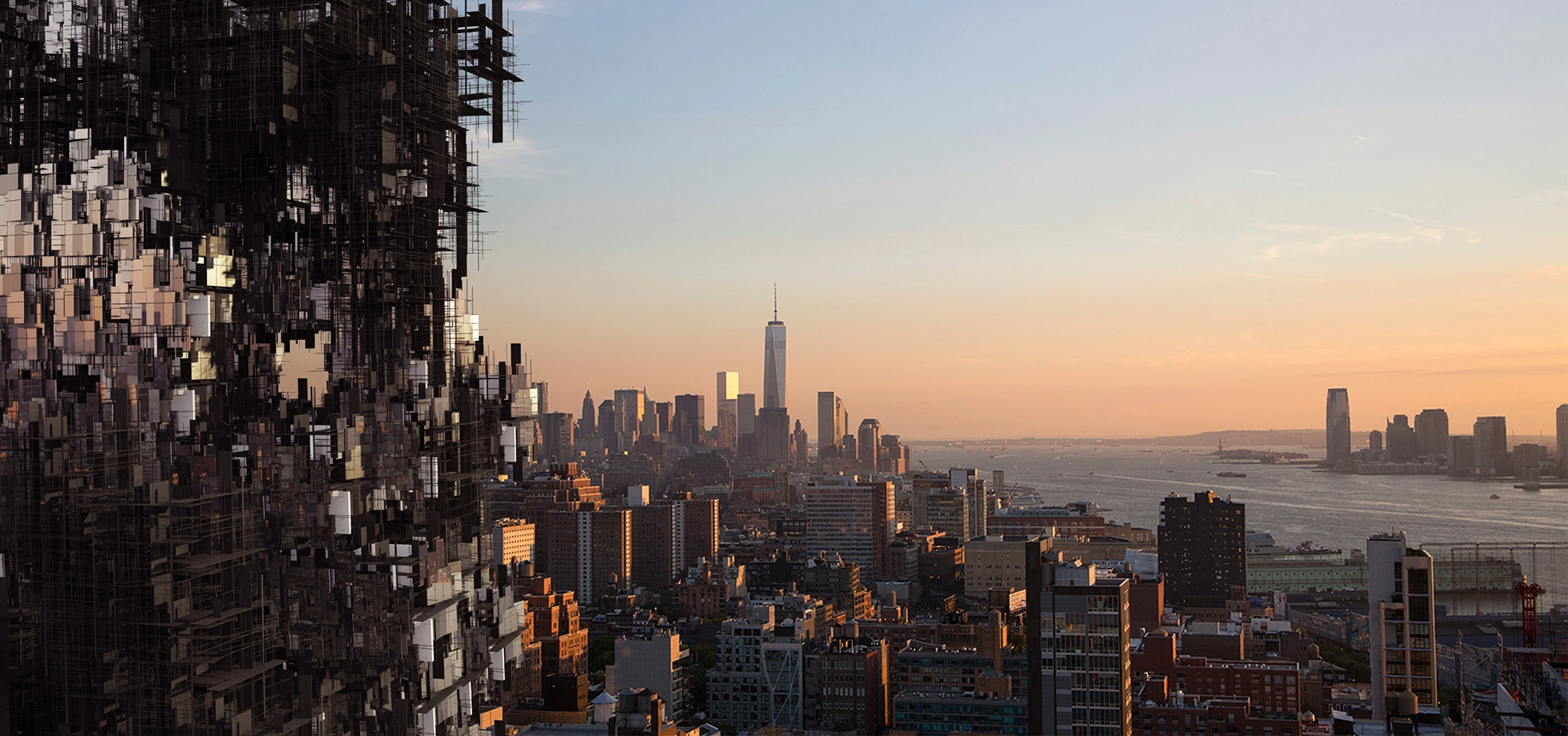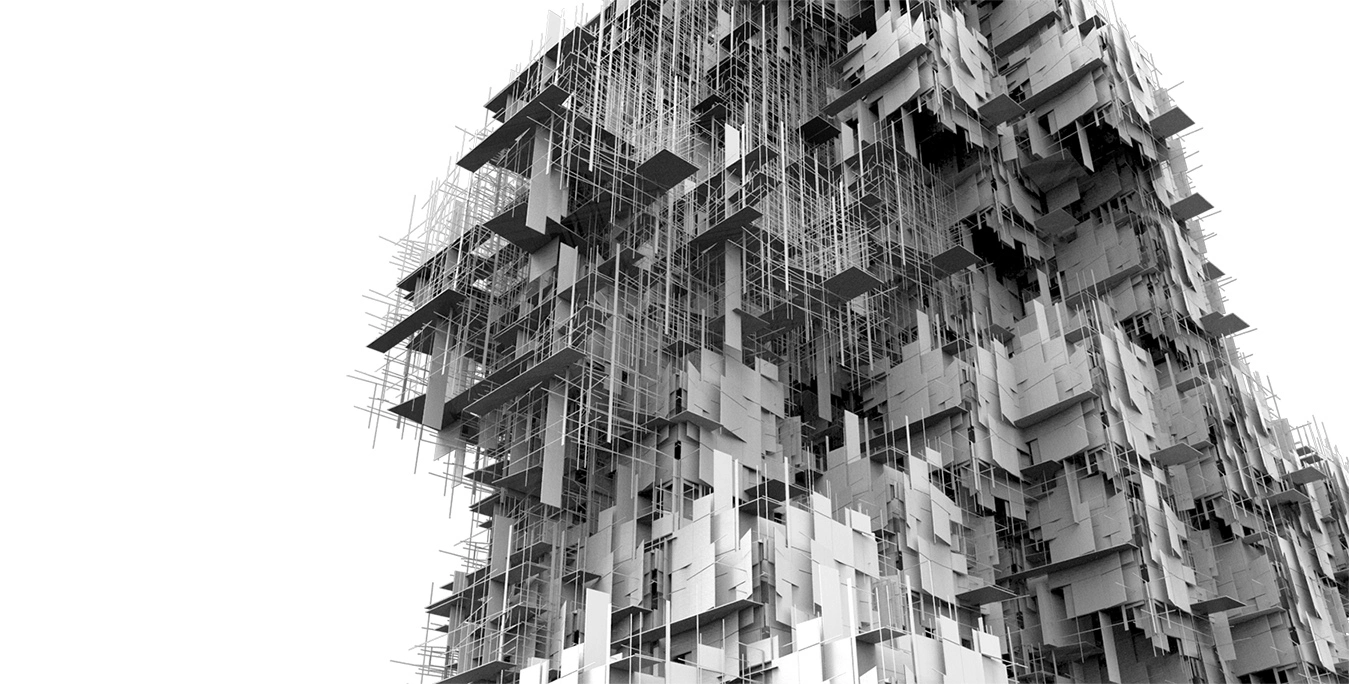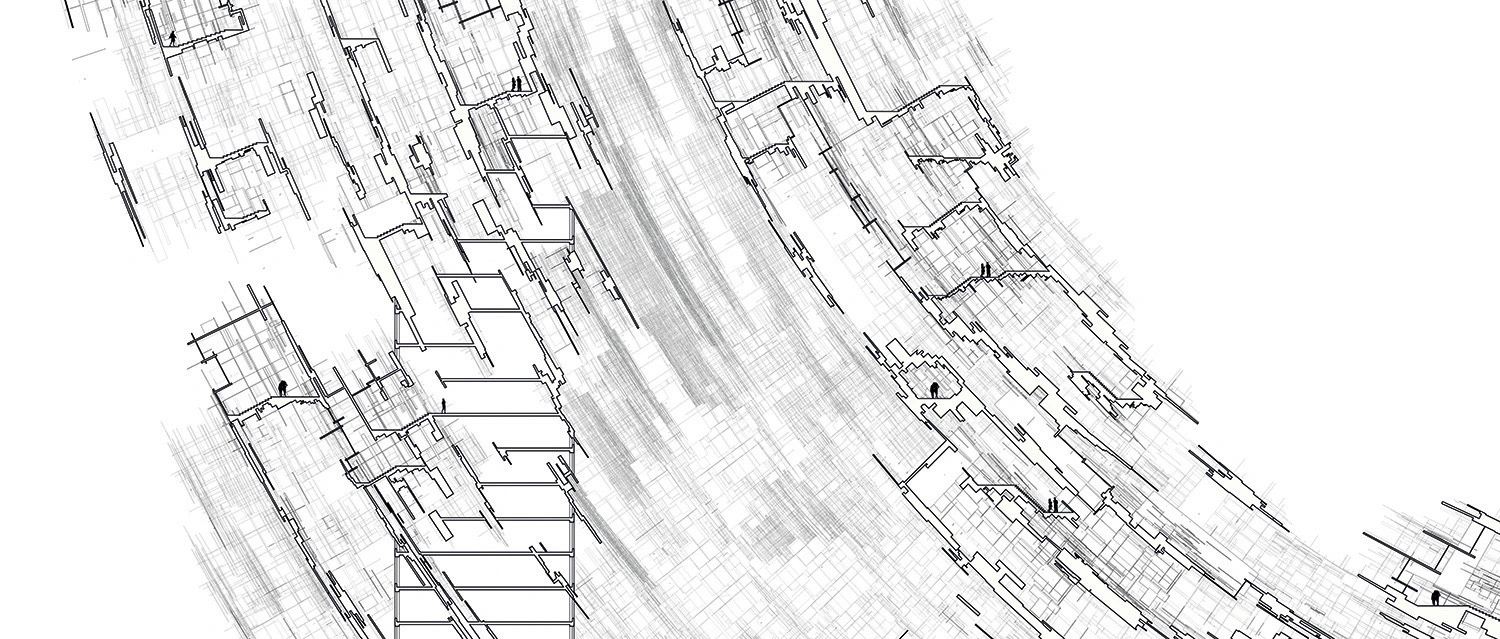ZOMBIE URBANISM
in collaboration with Alan Clara
|2015|
Within the contemporary City, a new kind of architectural object
emerges. An object, which looks like a building, has all the features
needed to function as a building, and belongs to our city, but is
totally empty or hardly occupied; a zombie building, which defines a
post-human urbanism for the first time in the history of human
settlement: an urbanism, which is not made for people but only for
design. According to the data described by Matthew Soules, the most
densely populated centers have more than doubled their numbers of
inhabitants during the last 10 years. Due to the new wealth of the world
population after the fall of the Berlin Wall and the wave of Capitalism
that swept over countries like China, India, Russia and many more, the
centers of world wealth have doubled their income within one decade.
This tremendous increase of money has led to a new kind of architecture,
whereby the money was stored in building investments without expecting
these buildings to make any profit because of tenants living there. The
only profit should come from the natural increase in value of the
premises.
This design method was applied while elaborating the bachelor thesis. The
idea to produce architectural formations of real objects which are losing
their autonomy of form as well as their signifier was the basis of the project.
The intention is to apply Graham Harman's idea of vicarious causation: a
theory based upon the principle that if two or more objects meet, they always
produce a third. The techniques applied to achieve this design method focuses
around the idea of a fake physics, deconstruction and reassembling.



